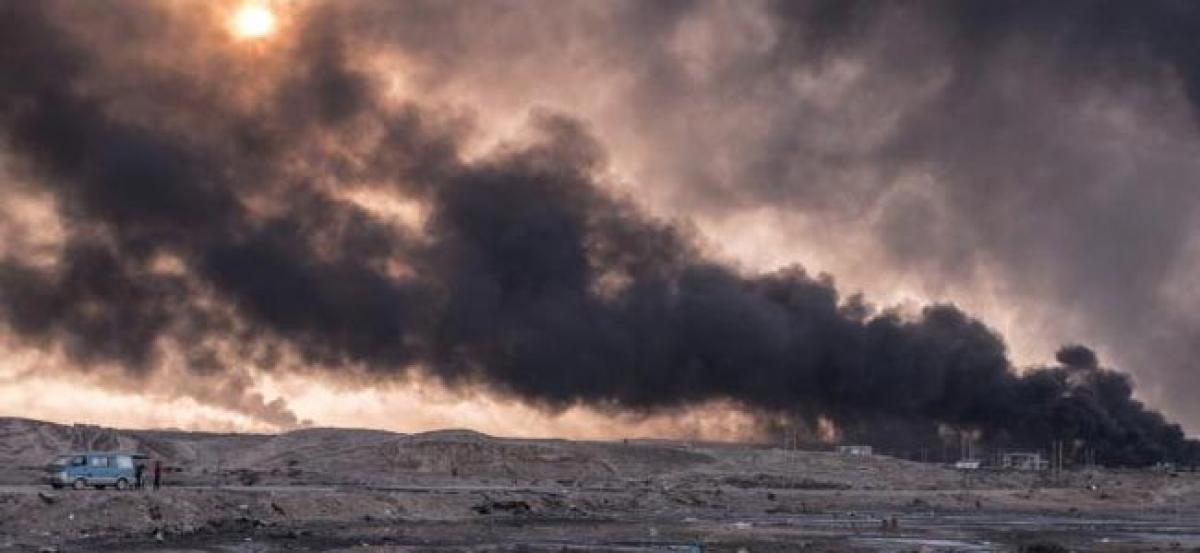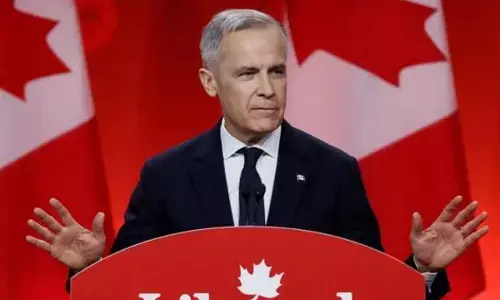Mosul bombings temper residents' relief at Islamic State pushback

The first blast, down the street from his uncle\'s restaurant in eastern Mosul, sent Mohammed Badr racing towards the door to check the situation. The second one, moments later at the entrance of the restaurant itself, knocked him off his feet.
MOSUL, IRAQ: The first blast, down the street from his uncle's restaurant in eastern Mosul, sent Mohammed Badr racing towards the door to check the situation. The second one, moments later at the entrance of the restaurant itself, knocked him off his feet.
Together, last Friday's twin suicide bombings killed 14 people and fractured the sense of safety and relief that many residents felt after Iraqi forces pushed the jihadists out of their neighbourhoods in months of heavy street-to-street fighting.
The eatery, called My Fair Lady, stayed open throughout Islamic State's brutal 2-1/2 year rule in the northern city, serving few customers besides the fighters. It quickly expanded after recent military advances, gaining popularity with locals, soldiers and even foreign journalists covering the war.
But restaurants and shops in the Zuhur district remain closed nearly a week later at the direction of security forces who say they could be targeted, and residents say they no longer feel safe staying out past dark.
"They don't want stability. They don't want life to return to Mosul," Badr said of Islamic State, which claimed the attacks. "I don't feel safe at all."
Badr, who was supervising workers emptying the restaurant's pantry on Tuesday, told Reuters he does not expect to reopen.
"The restaurant is finished. Hajj Nasser (the owner) was the pillar of the community. He is a martyr," he said, holding back tears.
Also killed in the attack were two of Nasser's other nephews, the guard who stopped the attacker from entering the restaurant, a longtime server and a young man who had just joined the staff that day.
"He started his first shift at seven-thirty in the morning and by two-thirty he was dead," said Badr, gazing at the spot on he floor where the men had died.
SLEEPER CELLS
As government forces entered eastern Mosul in November, Islamic State militants retreated deeper into the city and mortared civilian areas left behind. They have also stepped up attacks against locals with grenades dropped from drones.
But bombings like the one at My Fair Lady are different because they are likely conducted by sleeper cells, fighters who melted into the civilian population as the military advanced in order to attack the city from inside.
The restaurant bombing was the second of its kind in the four-month-old Mosul battle after three car bombs killed at least 15 people in an eastern suburb in December.
For the hundreds of thousands of residents in eastern districts, who defied expectations by staying in their homes throughout the offensive, this has put them on edge.
False alarms about bombings at schools, markets and other public places have become a daily occurrence along with house raids by security forces following up on tips.
"Of course there are (sleeper cells) but God willing we will eliminate them," said a local police colonel in the eastern suburb of Gogjali, requesting anonymity to speak to the media.
Speaking at a girls' school used by the police after their station was destroyed, he said there were not enough local forces to secure the city, Iraq's second largest.
The most effective Iraqi troops, including the elite counter-terrorism service, have redeployed to the outskirts of western Mosul - where Islamic State maintains full control - ahead of an offensive to retake that half of the city which is expected to start in the coming days.
That has left east Mosul under the control of some army units, a few thousand local police and an array of voluntary, paramilitary forces called Hashid.
NEW INSURGENCY?
The suicide bomber's head, burnt and bloodied, remains in a grassy traffic circle in front of the restaurant in Zuhur. It appeared to belong to a teenager.
Islamic State said in an online statement that the attackers were Mosul natives. Reuters could not verify that, but if true it indicates the group maintains some support among locals.
Badr, expressing contempt for the security forces, questioned how the bombers had crossed the myriad checkpoints in the neighbourhood to reach their targets.
"I don't expect but I fear things could become like 2006, 2007," he said, referring to the height of the Sunni insurgency in Mosul when bombings, assassinations and kidnappings were regular.
The militants behind that violence included al Qaeda, a predecessor to Islamic State, which seized all of Mosul along with a third of Iraq and large swathes of territory in neighbouring Syria in 2014, declaring a modern-day caliphate on that land.
Iraqi and Western officials have long expected Islamic State would revert to those earlier insurgent tactics as they lose ground.
Basman, a 32-year-old paramedic living on the street between Friday's two bomb sites, said he didn't know who was in charge of security in his neighbourhood.
He was unnerved that nobody had yet asked for his name to check it against the government's lists of Islamic State supporters.
"If the security forces don't clear and inspect everything, then what is the point of liberation?"




